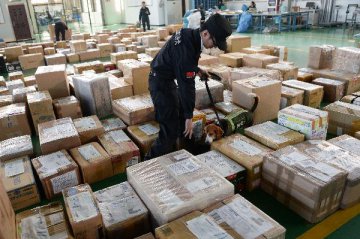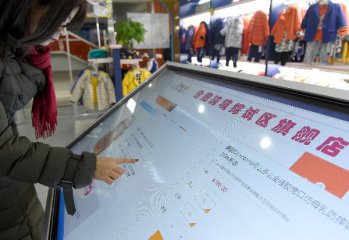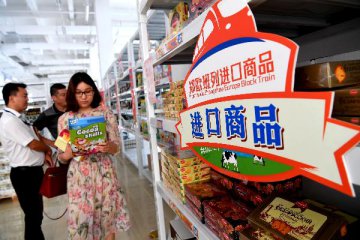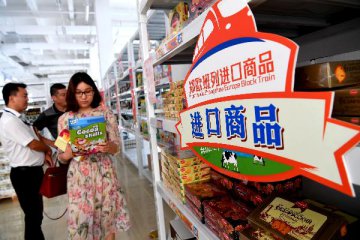
China is expected to allow 63 more items into its cross-border e-commerce retail imports list covering electronic products, small household appliances, food and health products, the Economic Information Daily reported on Monday.
The expansion is related to the upcoming transitional regulatory policies for cross-border e-commerce retail import.
After the expansion, the entire list of the cross-border e-commerce retail imports will include over 1,300 items that are among the most needed products of its domestic consumers.
According to the State Council, China will continue to implement its current transitional regulatory policies for cross-border e-commerce retail imports up to the end of this year. The newly-amended ones will take effect from the first day of 2019.
Meanwhile, the number of cities suitable for the policies will be expanded from 15 to 22. Quota for single transaction will be raised from 2,000 yuan to 5,000 yuan (from 288 U.S. dollars to 721 U.S. dollars) and that for annual transactions from 20,000 yuan to 26,000 yuan per person.
In fact, the expected endurance of the transitional regulatory policies for cross-border e-commerce retail imports was extended twice in 2016 and 2017 respectively. The latest extension will expire at the end of this year.
"Some enterprises are waiting for revised policies before making their own business decisions. Now they have answers," said Zhang Li, head of the E-commerce Research Institute of Chinese Academy of International Trade and Economic Cooperation.
Liu Peng, general manager of Tmall Global, said the announcement from the State Council was a signal for stable policies.
"In the past four years, Tmall Global has introduced 19,000 overseas brands into China from 75 countries covering 3,900 types of products, and over 80 percent of them entered China for the first time," said Liu.
Data showed that in 2017, the cross-border e-commerce retail imports had reached 56.6 billion yuan (8.2 billion U.S. dollars), up by 75.5 percent year on year.
From January to October in 2018, the figure was 67.2 billion yuan (9.7 billion U.S. dollars), up by 53.7 percent year on year.
























Latest comments